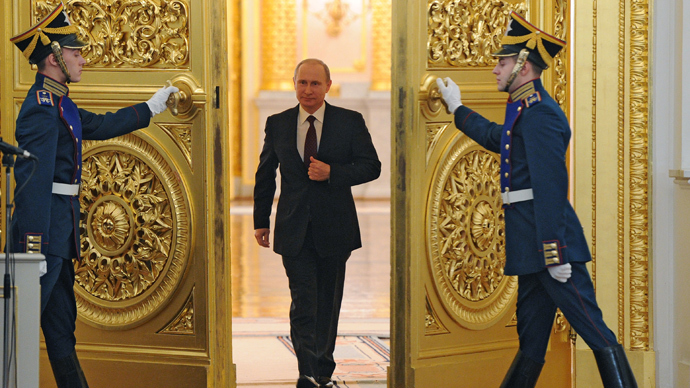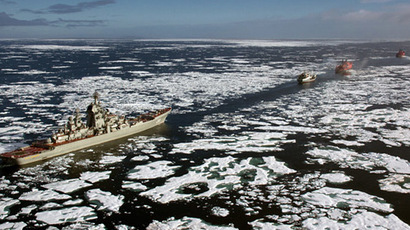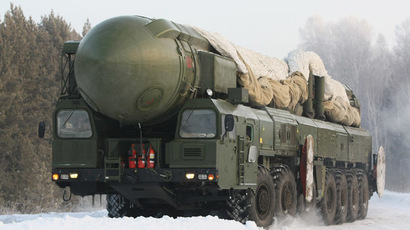‘Economic difficulties not an obstacle to fulfilling targets’ – Putin

President Vladimir Putin said in his annual address to the Federal Assembly that economic difficulties should not be an obstacle to fulfilling set targets – particularly those set out as a program for his third presidential term.
“Concrete measures aimed at ensuring Russia’s dynamic growth in all spheres of life were laid out in the May 2012 decrees. These decrees set forth a set of action points that represent the will of millions of people, the striving of Russians toward a better life. It is not uncommon to hear that achieving these targets is beyond our means financially – that we should lower our expectations and simplify our objectives,” the President said.
“Of course, economic conditions are prone to change – and indeed they are changing, constantly. But it is no excuse to start revising our targets. We must work and look for solutions, carefully manage our budgets and priorities. I therefore ask that we stick to all our programs,” Putin continued.
He sees this necessity in the improvement of the education and medical sectors – namely the raising of salaries and returning to these professions their long-lost “status of prestige.” The president added that to do this the country needs not only clever budgeting, but sticking to reforms aimed at improving the effectiveness and delivery of services in the social sphere. This will consequently lead to visible changes and a change in the national perception of Russia’s educational and medical institutions.
Putin’s address, which took place on the 20th anniversary of the drafting of Russia’s constitution, focused on a range of issues, among them the country’s pursuit of defending its own cultural and political values, as well as staying economically competitive and true to set targets.
'Tradition prevents moral breakdown'
The president sees Russian society’s continuing source of
strength in the pursuit of widely held principles of individual
freedoms – its ability to hold any personal and political views;
and also in its cherishing of cultural values developed over
centuries, which define the country’s inhabitants as a nation
with a distinct culture.
Too frequently in recent times, the president said, change has
been enforced on certain countries from the outside, in an
apparent attempt to get them to accept a certain, imagined,
global conscience that does not involve any national and cultural
distinctions.
“This sort of dismantling of traditional values from above does
not only have a negative impact on society as a whole, but is
also undemocratic at its core, as it is achieved by introducing
abstract concepts far removed from everyday realities and the
will of the majority,” Putin explained.
The president went on to say that an ever greater number of
people in the world support this view, especially those whose
cultural and religious values have been thousands of years in the
making.
The cultural aspects listed by the president as being
particularly important to the integrity of a nation had to do
with things like family and morality as well. They are seen by
Putin to constitute the building blocks of any culture.
The Russian president sees this defense as
“conservative”, but also argues that such conservatism
“is not aimed at curbing an upward growth, but at preventing
a regression to a primal state.”
In cases where countries were falling victim to what others
dubbed ‘progressive models’, there was usually a great breakdown
of social cohesion and often bloody violence, the president
argued, citing cases like North Africa and the Middle East, whose
conditions have greatly deteriorated in the past couple of years.














